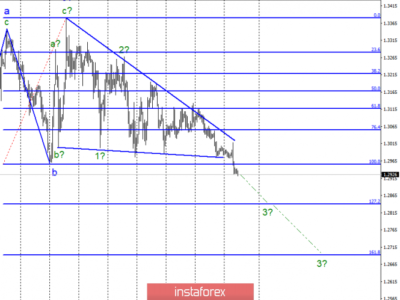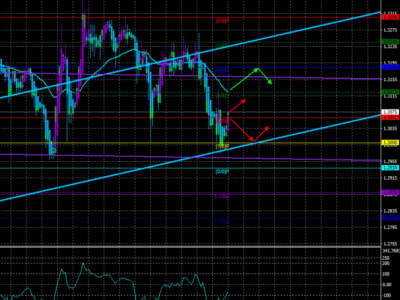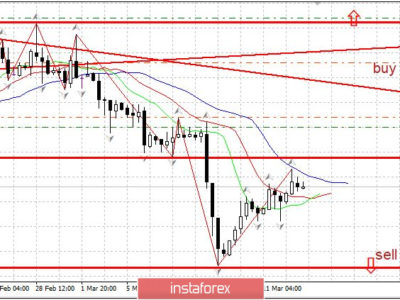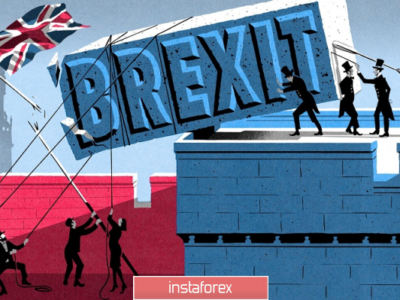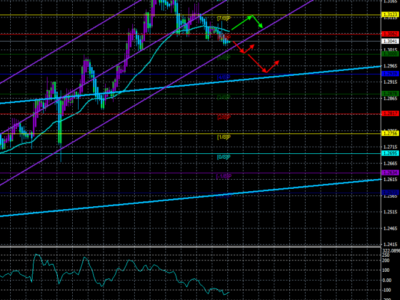Britain’s Financial Sector Gears Up for Brexit Vote
From the desk of Eliza Eliadou, head of compliance at easyMarkets.
Britain’s financial markets are reeling and the pound is in freefall. That’s your cue that the European Union (EU) referendum is approaching.
In just 2 days, Britons will vote on whether they want to remain part of the 28-member EU or go their separate way. As we all know, the decision isn’t so simple. As much as 950,000 jobs are potentially at stake,[1] according to one estimate that has been repeated by British Prime Minister David Cameron.
For Britain’s financial services industry, Brexit has the potential to wreak serious havoc. PwC anticipates that Brexit puts as many as 100,000 UK financial services jobs at risk by 2020, as multinational banks, insurance companies and investment brokers assess the regulatory impacts of the UK’s new arrangement with the rest of Europe. The PwC report, which was commissioned by industry lobby group TheCityUK, also showed that Brexit would reduce the sector’s contribution to GDP by £12 billion.[2]
Although we can peel these numbers in several ways, there are around 250 foreign banks with operations in London. Some of them have had a lot to say about the upcoming Brexit vote. Many inside Britain are concerned these institutions will vote with their feet on June 24 if Britain is in fact on its way out of the EU.
Complicating matters further is the fact that UK financial firms themselves would still be responsible for complying with EU legislation. In other words, if British banks want access to the EU market, they will still have to comply with EU rules. That means British banks and other financial institutions would still have to enforce MiFID II regulations, which cover European financial markets. The MiFID II framework comes into force January 2017, although the European Securities and Markets Authority has asked for it to be moved back one year.[3]
Implementing legislation similar to MiFID II in the UK is also seen as an important step for Britain to achieve “equivalency” with the rest of Europe’s financial markets in the event of a Brexit.[4] This “equivalency” period will have to be ironed out in the formal two-year negotiation process stipulated in the Lisbon Treaty, which outlines the framework for Member States wishing to leave the EU.
Once viewed as a long shot, Brexit appears to be gaining momentum if recent polls are any indication. The Vote Leave camp has opened up a ten-point lead, according to a recent poll conducted by ORB on behalf of The Independent, a British newspaper.[5]
Mr. Cameron is definitely feeling the heat, having recently condoned attacks directed at Vote Leave campaign leader Boris Johnson. Mr. Cameron also urged voters to ignore the recent opinion polls.
“In the election an awful lot of the commentary seemed to be determined by what the polls seemed to be saying. I think we should just forget about the polls,” the British leader said in a “town hall’ meeting last week, where he was confronted by an angry lady who had a few choice four-letter words to say.
Cameron shrugged off the F-bombs, focusing instead on the “very competitive” nature of the elections.
“I think it’s very competitive out there. You go round meeting people … it’s a huge debate, a lot of people still making up their mind. And here’s the difference with a general election. In a general election, when people say to you I haven’t decided, that normally means they are being polite but they are definitely not voting for you. With this, I actually think people really haven’t decided.”[6]
David Cameron has described the Brexit vote as more important than the election.[7] Very few political analysts believe his reign as Prime Minister could survive a Brexit vote, making the next few days especially vital for the Conservative leader.
Whatever way the vote goes, the next few days will be trying on Britain and the rest of the global financial markets. While there’s plenty of speculation surrounding the real impact of Brexit on the UK’s financial services industry, most economists are hoping they don’t have to find out.
[1] Eddie Buckie (March 20, 2016). “’Brexit’ Could Cost U.K. 950,000 Jobs by 2020, CBI Study Says. Bloomberg.
[2] Martin Arnold, Emma Dunkley and James Shotter (April 14, 2016). “City’s status as financial hub at risk from Brexit vote, says Cryan.” Financial Times.
[3] Shanny Baser (January 15, 2016). “’Brexit’ Won’t Remove EU Compliance Mandates.” Markets Media.
[4] Niholas Bean, Mark Croxon and Gary Stone (April 18, 2016). “MiFID still happens with “Brexit”.”
[5] Andrew Grice (June 10, 2016). “EU referendum: Poll reveals 10-point swing towards Brexit as Leave campaign gains momentum.” The Independent.
[6] Andrew Sparrow and Claire Phipps (June 10, 2016). “EU referendum live: Cameron condones ITV debate attacks on Johnson, saying debates ‘get lively’.” The Guardian.
[7] Robert Hutton and Jill Ward (May 22, 2016). “Cameron Says U.K.’s Brexit Vote More Important Than Election.” Bloomberg.
The post Britain’s Financial Sector Gears Up for Brexit Vote appeared first on Forex.Info.
Source:: Britain’s Financial Sector Gears Up for Brexit Vote



